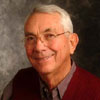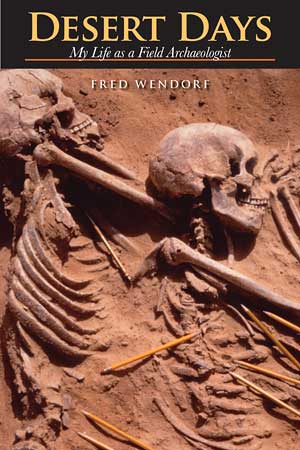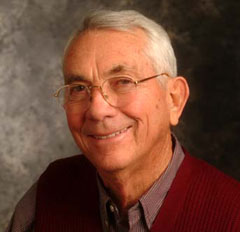SMU archeologist shares highlights of his storied career
Fred Wendorf, who has spent more than 60 years unearthing the secrets of the ancient past, writes about his adventures.

It’s not a stretch to imagine there might not have been an SMU-in-Taos without Fred Wendorf.
 Book-signing and reception set for Feb. 5 |
The renowned archeologist’s early-career excavations in New Mexico unearthed the remnants of a log fort established by U.S. soldiers in 1852 to protect Taos-area settlers from roaming Apache and Comanche Indians. Wendorf reconstructed Fort Burgwin’s structures based on sketches of the original log buildings.
SMU began acquiring the property in 1964, which evolved into the campus for SMU-in-Taos and now offers academic courses in the humanities, natural sciences, and the arts as well as archeological and anthropological research.
In addition, Wendorf served as leader of the Combined Prehistoric Expedition to Egypt from 1962-2000. His expeditions produced most of what is known about the Stone Age prehistory of northeastern Africa.
In 2001, he gave more than 6 million ancient Nile Valley artifacts he had collected to the British Museum in London. He secured most of the artifacts during excavations carried out from 1963 to 1977 in Nubia, an ancient country between Egypt and the Sudan. This area was flooded beginning in 1965 to create Lake Nasser. The artifacts range in age from half-a-million years old to 5,000 years old and have helped shed new light on prehistoric humans. Wendorf’s collection included a 13,000-year-old burial site that is believed to be the oldest sign of organized warfare. The collection also included pottery sherds that are believed to be among the oldest in the world as well as 70 skeletons from a single site that have been dated at 13,700 years old. The collection has formed the basis of several doctoral theses in archaeology by graduate students at SMU.
The author of more than 30 books, Wendorf has been a member of the SMU faculty since 1964. In 1987, he became the first SMU faculty member elected to the National Academy of Sciences.
Wendorf’s book, Desert Days: My Life as a Field Archeologist, has been published by SMU Press in cooperation with the William P. Clements Center for Southwest Studies. An SMU Emeritus Professor of Anthropology, Wendorf produced most of what is known about the Stone Age prehistory of Africa and has contributed centrally to archeology of the American Southwest.
 Fred Wendorf |
Wendorf’s career contributions and new book will be spotlighted at a Feb. 5 reception, book signing and lecture at SMU's DeGolyer Library. The reception begins at 6 p.m. in the Texana Room and Wendorf's book signing and lecture will follow at 6:30 p.m. in the Stanley Marcus Reading Room: Both are free and open to the public.
Registration for Wendorf’s reception and book signing is available at 214-768-3231.
# # #